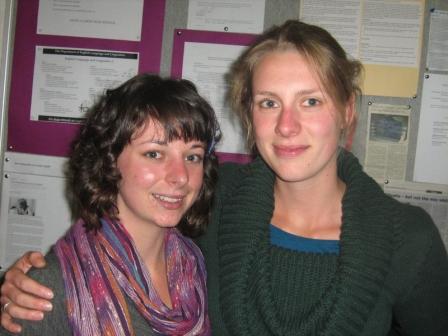
Euphemisms in parliament and insults at an anti-rape protest were the topic of discussion at the second in a series of Rhodes Linguistics Honours Research Seminars, on Tuesday 4 October. With such a strong focus on evaluative language and its links with broader society, the seminar was an intriguing window into what is happening in South African political discourse today.
Sanne Lauriks began the seminar by introducing her project on the occurrence of euphemism in South African parliamentary discourse. She described parliamentary debates as an interesting place to study euphemisms and politeness behaviour in general, because members of parliament (MPs) need to walk a veritable tightrope between the conflicting goals of winning the debate and conforming to the rules of parliament. She analysed two debates, one on the presentation of the Postbank Bill, and another on a motion of no confidence in the president, Jacob Zuma. The Postbank Bill revolved around offering banking services to poor communities, so Sanne found that many euphemisms for poverty were used in this debate, particularly by members of the ruling ANC. By contrast, she battled to find euphemisms in the debate on the motion of no confidence, because both sides of the debate were at each other’s throats, showing extremely adversarial behaviour. Her experience suggests that the South African parliament is far more adversarial than the European parliaments she has studied.
Amy Richardson, the second presenter, talked about her analysis of the evaluative language used in speeches at Rhodes University’s annual Silent Protest against sexual violence. Amy was particularly interested in looking at how these speeches to the protesters created an impression of who the “ideal activist” was. Using the methods of APPRAISAL and Critical Discourse Analysis, she found that some speeches were more transformational than others. Some speeches encouraged solidarity and unity in fighting for a worthy cause, and demonstrated the transformational leadership of the protest organizers. However, others were so emphatically anti-male that they excluded a large proportion of the protesters from the “in-group” of ideal activists. Amy recommends that the organizers of the Silent Protest need to take care to ensure that more of the participants at the event feel valued and that their views are represented by the protest leaders.
